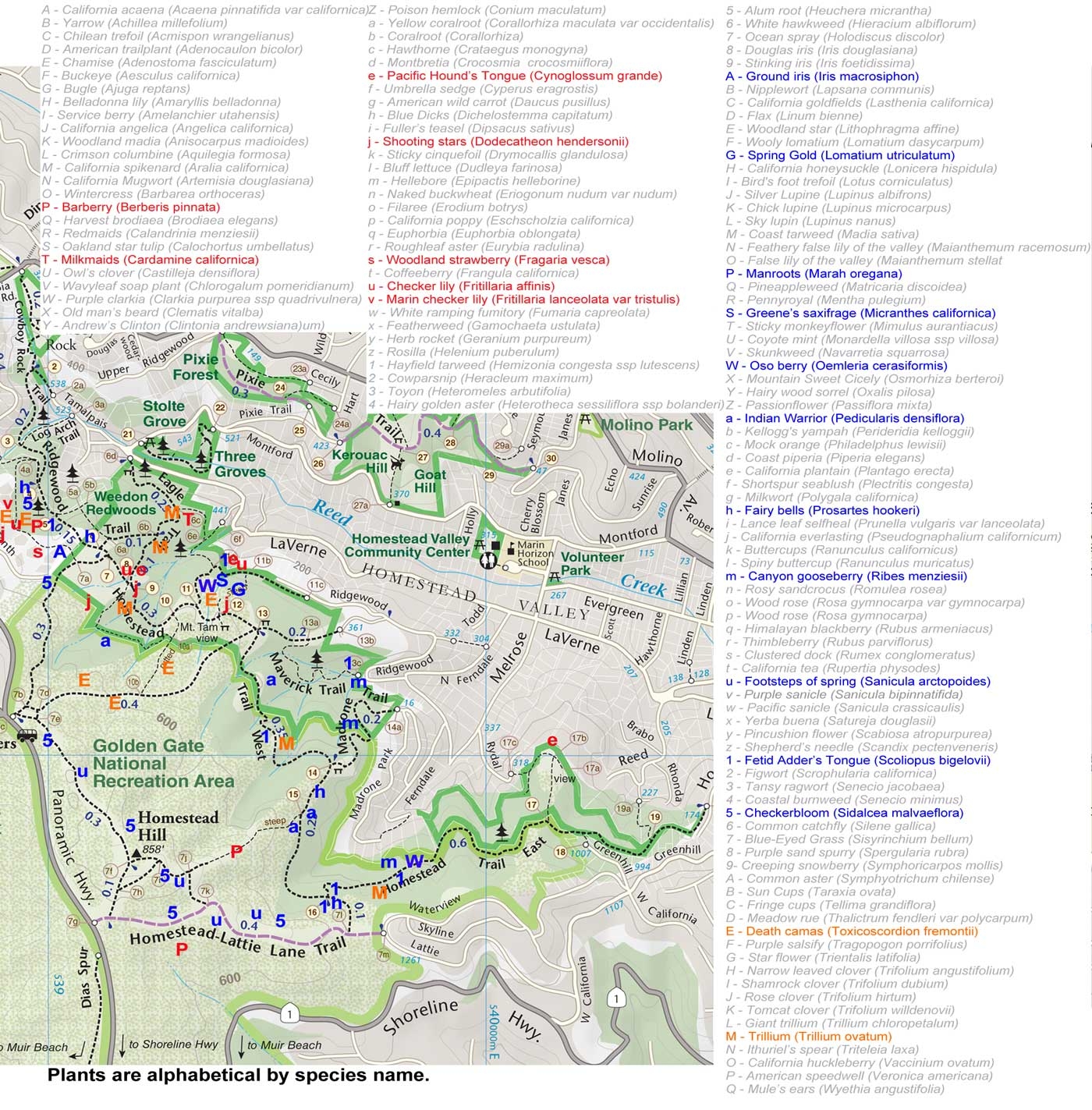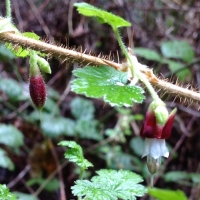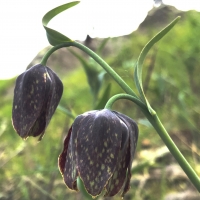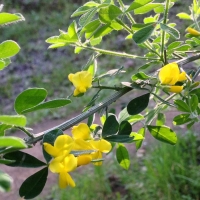NEW
– French broom, native to the Mediterranean, is one of our most aggressive invaders and also one of the easiest to pull.
– Canyon gooseberry is blooming at the Ridgewood u-bend, trailhead to 13 and in the forests where huckleberry grows. The flowers are very small, blooming on almost bare branches as they emerge with the leaves.
– Checker lily, brown lily-bell flower with leopard print cup. Look for it at the forest edge or sheltered in meadows.
Forests
Starting
– Fairy bells cream flowers hang below the leaves of this woodland plant.
– Forget-me-nots, native to Europe, is one of our most successful invaders. Easy to pull, easiest to identify when it’s flowering, so pull it then.
– Indian warrior is coming up all over in the area – 15 right along the Homestead Trail – that we finished clearing a few months ago. A few blooms are showing their crimson colors but the scope of the patch will only become clear later in the season when the hillside blooms.
– Manroot, a native vine with large maple-shaped leaves is blooming white as it climbs.
– Milkmaids, a pretty white flower with arugula-tasting leaves is blooming in forests.
– Oso berry, our native plum, is just starting to bloom on the Ridgewood Rock.
– Trilium are bright white in their bed of three green leaves on the forest floor.
Peaking
– Fetid adder’s tongue, one of our most exotic blooms is blooming in large patches.
– Green wattle acacia tree native to Australia is starting to bloom with its bright yellow puff flowers.
– Scotch broom, native to Western Europe, one of the most aggressive invaders of our meadows is blooming with its yellow pea flowers. Pull it before it goes to seed if you can.
– Tasmanian blue gum, is blooming white high in the huge eucalyptus trees.
– Coast live oak blooms with pink tassels.
– California bay laurel, our most common native tree’s blooms have a delicate vanilla scent.
Forest edges
Starting
– Barberry, hollylike leaves and clusters of fragrant, yellow flowers.
– Blackwood acacia, native to Australia, is blooming with yellow puff flowers.
– California blackberry is blooming with paper-white flowers, on a thinner, trailing vine than Himalayan blackberry.
– Cherry plum, native to Southeast Europe, is blooming bright white and sweet around the valley.
– Greene’s saxifrage’s small white flowers are opening on a moss covered shelf of the Ridgewood Rock.
– Pacific hounds tongue with its forget-me-not-looking flowers and large leaves is blooming now in oak meadows. There are also tons of emerging leaves promising a big year for this wildflower.
– Sourgrass*, native to South Africa, is blooming up on the ridge. Although fun to chew on for kids, this plant is a very successful non-native spreading in wet locations where natives might otherwise grow.
– Spring gold is blooming yellow on the Ridgewood Rock.
– Woodland strawberry blooms are starting now where there is sun, will persist for months in different habitats as they warm.
Meadows
Starting
– Checkerbloom’s bright pink is starting to bloom on the ridges of Homestead Hill.
– Chickweed, native to Europe, medicinal and edible is blooming with its white star flower.
– Footsteps of spring are bright yellow, hugging the ground up on the ridge.
– Fremont’s deathcamas is blooming white wherever a bit of meadow peaks out from the shrubs.
– Ground iris is blooming purple in meadows.
– Marin checker lily with its chocolate bell flowers is blooming in the meadow below Amaranth.
– Shooting star with its bright pink flowers is blooming at trail junction 9, on the Ridgewood Rock and below Amaranth.
Key to map:
I haven’t located plants on on the map if they are very prolific. Find them by their habitat.

Gallery of wildflowers and plants found in Homestead.
*Non-native
Share this:

